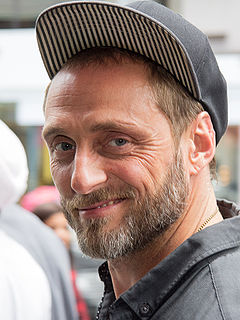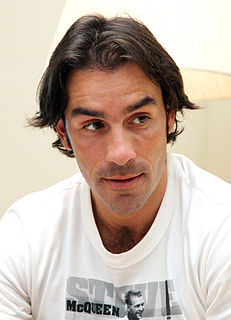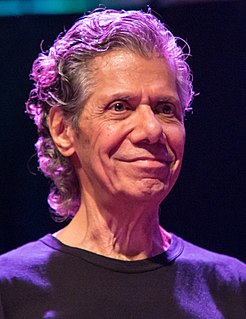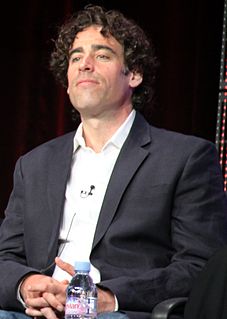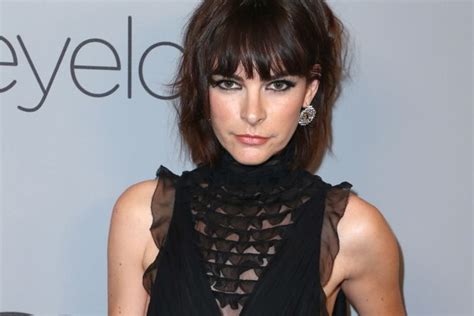A Quote by John Grant
The lead character in 'Adaptation' is pretty much me but with more talent. Every time I watch 'Adaptation,' I feel very emotional because it makes me be kinder to myself and see the human situation a little more clearly.
Related Quotes
I don't think I change, but it definitely makes me aware of some of the things that are inside of me. Actually, because I have played a lot of villains up until now, I put something of myself into these roles. So when I see myself on the screen I'm more aware of when I'm like them in real life. I can feel it. That's the character you play; that's the guy you don't want to be. So I'm more in control of it.
I felt like a fake the whole time and it made me very, very nervous - which is why I have such great respect for actors, because I can't do what they do. I really can't do it. I'm always uncomfortable. And I'm just grateful that I recognized that this uncomfortable-ness was a sign that I shouldn't be doing it. More than not having any talent - which is clearly obvious - more than not having any talent, it was so uncomfortable and I was so insecure. And I was so frightened. And the thought of being somebody other than myself was impossible for me.
Shane Salerno and I adapted my book Savages together, and I learned a lot about adaptation. I think it's an extremely difficult thing to do; adaptation might even be more difficult than writing an original screenplay. It's so much a matter of choices, making choices of what to leave in. It was an education.
For me, the best characters are the ones that feel fully formed inside and out, so I try to have a very clear vision of exactly what they would wear, top to bottom, who they are, what their backstory is, what their family situation is, who are their friends, just creating as much of a three-dimensional character [as possible]. Because I think you could do a very broad character, but as long as there's some emotional truth to them you can get away with really crazy things.
As a musician, I don't have one thing that's "my thing." I like to create, and have a lot of outlets for it. Dustin Hoffman is one of the guys that sets a model for me, because of how good he is at being such different characters. Every time you see DeNiro, he's pretty much DeNiro - great, but DeNiro. Hoffman is different every time, depending on his character. That's how I see myself as a performer.
I start to see that I surround myself with broken people; more broken than me. Ah, yes, let me count your cracks. Let's see, one hundred, two... yes, you'll do nicely. A cracked companion makes me look more whole, gives me something outside myself to care for. When I'm with whole, healed people I feel my own cracks, the shatters, the insanities of dislocation in myself.

